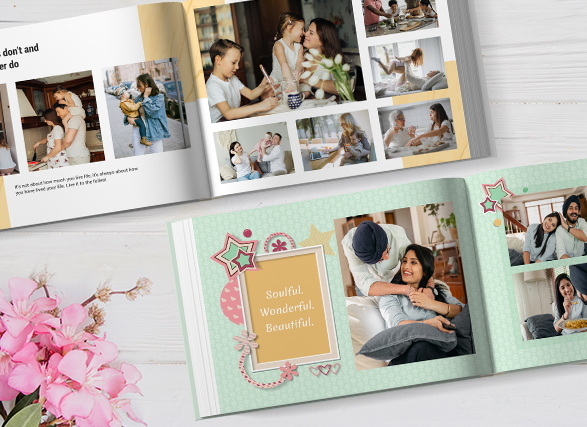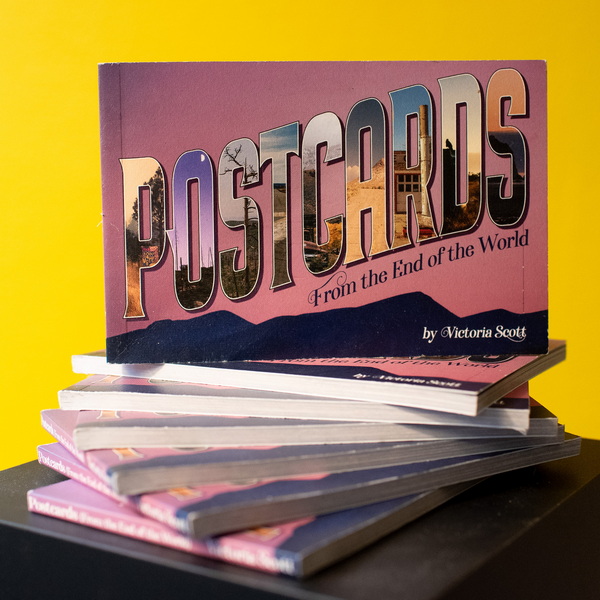Content Menu
● Choosing Your Theme and Purpose
● Organizing Your Photos
● Designing Your Photo Book
>> Choose a Photo Book Service
>> Set Up Your Project
>> Upload Your Photos
>> Select Layouts and Backgrounds
>> Add Text
● Arranging Your Photos
● Finalizing Your Photo Book
>> Proofreading
>> Previewing Layouts
>> Getting Feedback
● Printing Your Photo Book
● Tips for Maintaining Your Photo Book
● Conclusion
● Related Questions
>> 1. What is the best size for a photo book?
>> 2. How many photos should I include in my photo book?
>> 3. Can I include text in my photo book?
>> 4. What type of paper should I choose for printing?
>> 5. How long does it take to create a photo book?
● Citations:
Creating a photo book is a rewarding way to preserve and showcase your cherished memories. Whether you want to celebrate a special occasion, document a journey, or simply compile your favorite photographs, a photo book allows you to tell your story in a tangible format. This comprehensive guide will walk you through the entire process of creating your own photo book, from selecting images to printing the final product.

Choosing Your Theme and Purpose
The first step in creating a photo book is to define its theme and purpose. A clear theme helps unify your images and gives your book a narrative structure. Here are some popular themes to consider:
- Family Memories: Capture milestones, holidays, and everyday moments with family.
- Travel Adventures: Document your journeys with photos from various destinations.
- Special Events: Celebrate occasions like weddings, anniversaries, or graduations.
- Personal Projects: Showcase your photography skills or artistic expressions.
Once you have established a theme, think about the story you want to tell. Consider the sequence of events or the emotional journey you wish to convey through your images.
It can also be beneficial to brainstorm ideas for how you want to present your theme. For example, if you're creating a travel photo book, you might want to organize it by location or by the timeline of your journey. If it's a family memory book, consider grouping photos by year or by family member.
Organizing Your Photos
Before diving into the design process, gather all the photos you want to include in your book. This step involves:
- Collecting Images: Gather photos from different sources such as smartphones, cameras, and social media. Create a dedicated folder on your computer labeled “Photo Book” for easy access.
- Filtering and Editing: Review your collection and select high-resolution images that fit your theme. Remove duplicates and any low-quality photos that may detract from the overall quality of the book. Consider enhancing images through basic editing—adjusting brightness, contrast, and cropping as needed.
In addition to filtering for quality, think about the emotional impact of each photo. Choose images that evoke strong memories or feelings, as these will resonate more with viewers when they flip through your book.
Designing Your Photo Book
With your photos organized, it's time to start designing your photo book. Here are key steps in this creative process:
Choose a Photo Book Service
Select an online platform or software that suits your needs for creating photo books. Popular options include Shutterfly, Mixbook, Snapfish, and Artifact Uprising. Each service offers various templates and customization options.
When choosing a service, consider factors such as user interface ease of use, available design templates, pricing options, and customer reviews regarding print quality. Some platforms even offer mobile apps that allow you to create photo books directly from your smartphone.
Set Up Your Project
Once you've chosen a service, start a new project by selecting the size and format of your photo book. Common sizes include:
- Small (6 x 6 inches): Ideal for compact displays.
- Medium (8.5 x 8.5 inches): A balanced option for portability and visibility.
- Large (12 x 12 inches): Perfect for showcasing stunning visuals.
You may also have options for landscape versus portrait orientations; choose one that best fits the type of images you are using.
Upload Your Photos
Upload the selected images from your organized folder to the platform. Most services allow you to drag and drop photos easily or upload them directly from cloud storage.
As you upload photos, take note of how they look on the platform's interface; some services provide automatic enhancements or cropping suggestions that can improve image presentation.
Select Layouts and Backgrounds
Experiment with different layouts for each page. You can choose full-page images, collages, or combinations of both. Pay attention to the following:
- White Space: Leave some blank spaces around images to avoid clutter and enhance visual appeal.
- Color Coordination: Use backgrounds that complement your photos without overshadowing them.
Consider using themed backgrounds that match your overall concept—soft pastels for family memories or vibrant colors for travel adventures can enhance the mood of each page.
Add Text
Incorporate text elements such as titles, captions, dates, or personal anecdotes to provide context for your images. Be mindful of font choices—opt for readable styles that align with the overall aesthetic of your book.
You might also consider adding quotes that resonate with the theme of each section or page; these can add depth and personal touch to the narrative you're creating.

Arranging Your Photos
The arrangement of images plays a crucial role in storytelling within your photo book:
- Chronological Order: For events like vacations or celebrations, arrange photos in chronological order to create a narrative flow.
- Thematic Grouping: If your book covers various themes (e.g., family gatherings), group similar images together to maintain coherence.
- Visual Balance: Mix different types of shots (landscapes, portraits) across pages to create visual interest.
Additionally, consider using transitional pages with quotes or brief narratives between sections; this can help guide readers through different themes or time periods in your story.
Finalizing Your Photo Book
Once you have designed all pages, it's essential to review everything carefully before printing:
Proofreading
Check all text for spelling errors or typos. Ensure that captions accurately describe the corresponding images.
Previewing Layouts
Use the preview function provided by the service to see how each page looks together. Make any necessary adjustments to ensure consistency in layout and design throughout the book.
Getting Feedback
Consider sharing a draft with friends or family members for their input before finalizing it. They may catch errors you overlooked or provide valuable suggestions.
It can also be helpful to get feedback on emotional impact—ask others which images resonate most strongly with them and why; this insight can guide final adjustments before printing.
Printing Your Photo Book
After finalizing the design and layout:
1. Select Printing Options: Choose paper quality (matte or glossy) and binding type (hardcover or softcover).
2. Place Your Order: Follow the prompts on the platform to finalize your order and make payment.
3. Wait for Delivery: After placing your order, it typically takes a few days to weeks for production and shipping depending on the service chosen.
When receiving your printed photo book, inspect it thoroughly upon arrival; check that all pages are printed correctly without any defects or misalignments.
Tips for Maintaining Your Photo Book
Once you've created and received your photo book, consider these tips for preserving its quality over time:
- Store Properly: Keep your photo book in a cool, dry place away from direct sunlight to prevent fading and deterioration of materials.
- Handle with Care: When flipping through pages, handle them gently to avoid creasing or tearing.
- Share Responsibly: If sharing with others (especially children), supervise handling to maintain its condition.
- Consider Digital Copies: Create digital versions of your photo book as backups; this ensures you have access even if something happens to the physical copy.
Conclusion
Creating your own photo book is not only about compiling pictures; it's about telling a story that reflects meaningful moments in your life. From choosing a theme to arranging layouts and selecting prints, each step contributes to crafting an unforgettable keepsake that can be cherished for years to come.
By following this guide, you can create a personalized photo book that captures memories beautifully while showcasing your creativity as well as storytelling abilities. The process is not just about preserving memories but also about reliving those moments as you curate them into a cohesive narrative format.

Related Questions
1. What is the best size for a photo book?
The best size depends on personal preference and intended use; common sizes include small (6x6), medium (8.5x8.5), and large (12x12) formats.
2. How many photos should I include in my photo book?
Aim for around 50-100 high-quality photos for an average-sized photo book; however, this can vary based on layout preferences and storytelling needs.
3. Can I include text in my photo book?
Yes! Adding text such as captions or anecdotes enhances storytelling by providing context for each image.
4. What type of paper should I choose for printing?
For durability and quality, consider using premium luster or matte paper; glossy finishes can also enhance color vibrancy but may reflect light.
5. How long does it take to create a photo book?
The time varies based on complexity; however, expect several hours for design work plus additional time for printing and shipping—typically ranging from one week to several weeks total.
Citations:
[1] https://www.theschoolofphotography.com/tutorials/how-to-create-a-photography-book
[2] https://www.shutterfly.com/ideas/how-to-make-the-perfect-photo-book/
[3] https://www.papier.com/us/thefold/articles/how-to-create-a-photo-book
[4] https://www.wordtune.com/blog/increase-essay-word-count
[5] https://unitednationsofphotography.com/2022/08/21/how-to-make-a-photo-book-a-simple-guide/
[6] https://www.magnumphotos.com/events/making-photo-books-four-key-questions-to-consider/
[7] https://support.snapfish.com/hc/en-us/articles/226720188-Create-a-photo-book
[8] https://www.mixbook.com/inspiration/how-to-make-a-photo-book
[9] https://www.artifactuprising.com/photo-books/how-to-make-a-photo-book
[10] https://blog.kellywilliamsphotographer.com/photo-books-start-finish/
































